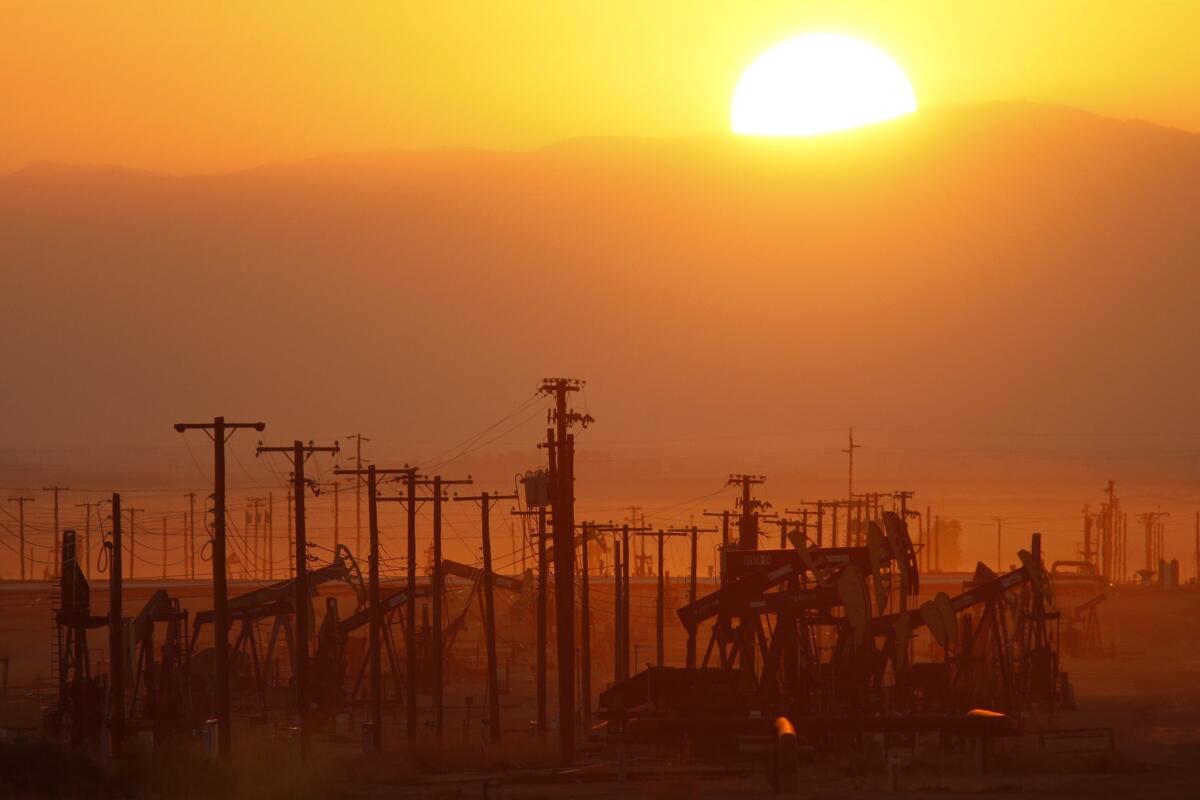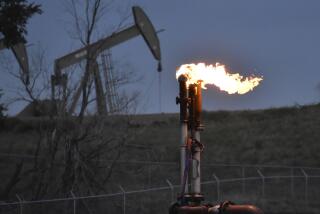Congressional watchdog urges EPA to step up actions on fracking

- Share via
The Government Accountability Office is calling on the federal Environmental Protection Agency to step up enforcement of water contamination and seismic activity associated with fracking, the high-pressure injection of fluids into wells to extract oil and natural gas.
In a report made public Monday, the GAO, the investigative arm of Congress, found that the EPA’s efforts were hindered because the guidance it gives other agencies hasn’t been updated since the 1980s. In addition, the GAO said, the EPA lacks the resources needed for enforcement, such as annual on-site evaluations. The issue is important because fracking has been increasing.
“Every day in the United States, at least 2 billion gallons of fluids are injected into over 172,000 wells to enhance oil and gas production, or to dispose of fluids brought to the surface during the extraction of oil and gas resources,” the GAO said. “These wells are subject to regulation to protect drinking water sources under EPA’s UIC class II program and approved state class II programs. Because much of the population relies on underground sources for drinking water, these wells have raised concerns about the safety of the nation’s drinking water.”
Responding to the report, the EPA said it generally agreed with the GAO’s findings.
Environmental groups praised the GAO.
“The federal government’s watchdog is saying what communities across the country have known for years: Fracking is putting Americans at risk,” said Amy Mall, a senior policy analyst for the Natural Resources Defense Council. “From drinking-water contamination to man-made earthquakes, the reckless way oil and gas companies deal with their waste is a big problem. Outdated rules and insufficient enforcement are largely to blame. EPA needs to rein in this industry run amok.”
Fracking, or hydraulic fracturing, involves injecting fluids at high pressure into a well, creating cracks that allow natural gas and other petroleum products to be more easily extracted. Opponents argue that there is a risk of contaminants seeping into ground water and that the technique can increase seismic activity.
The EPA has approved 39 states to manage their own regulatory programs, and takes direct responsibility for the rest of the states and programs involving injection of fluids into wells, according to the GAO. Technically, the program oversees what are called class II wells.
In its report, the GAO examined eight states, two directly managed by the EPA and six that are the responsibility of the states, but with safeguards approved by the EPA.
“Overall, EPA and state program officials reported that these safeguards are protective, resulting in few known incidents of contamination,” the GAO said. “However, the safeguards do not address emerging underground injection risks, such as seismic activity and overly high pressure in geologic formations leading to surface outbreaks of fluids.”
EPA has a group working to review “seismicity associated with injection wells and possible safeguards, but it does not plan reviews of other emerging risks, such as high pressure in formations,” the GAO said. “Without reviews of these risks, class II programs may not have the information necessary to fully protect underground drinking water.”
Follow @latimesmuskal for national news.
More to Read
Sign up for Essential California
The most important California stories and recommendations in your inbox every morning.
You may occasionally receive promotional content from the Los Angeles Times.











